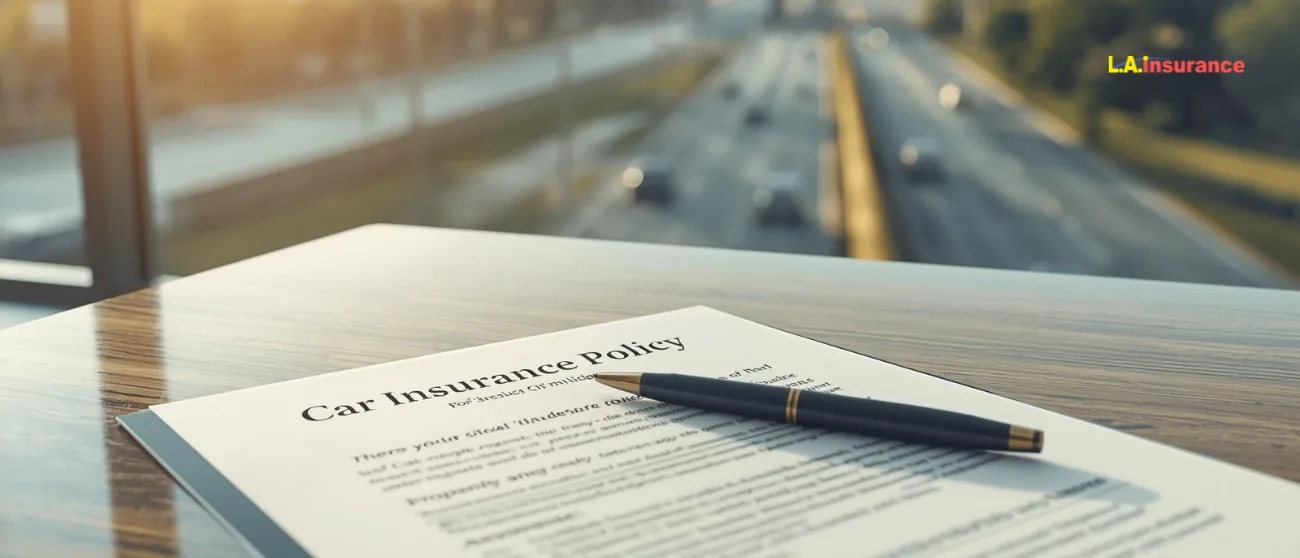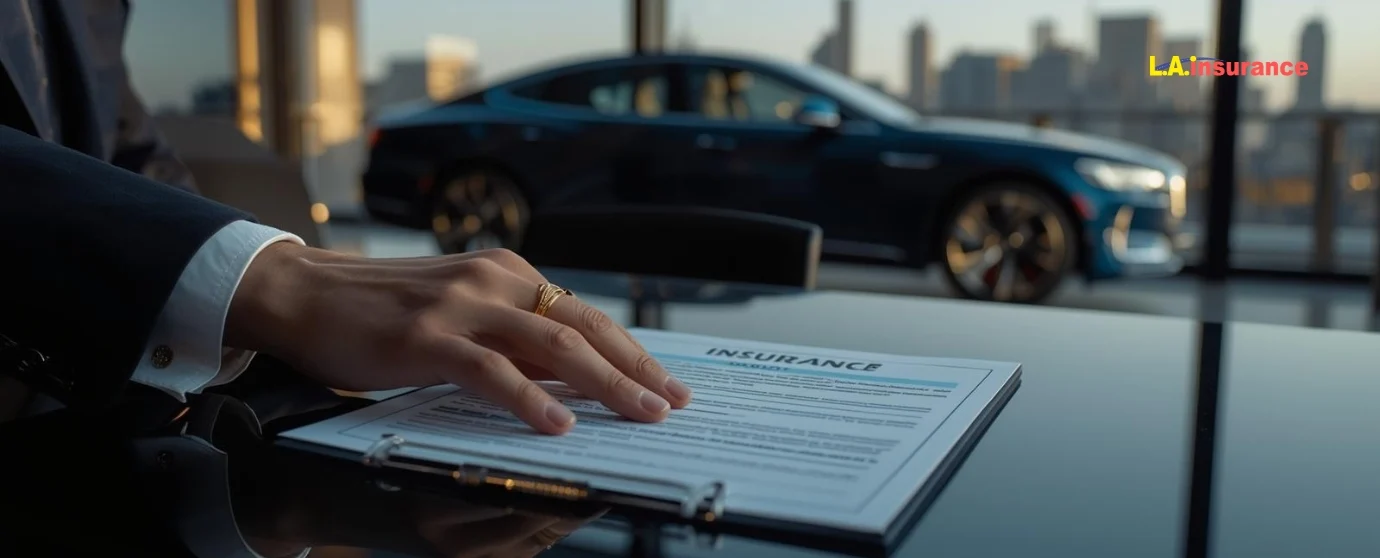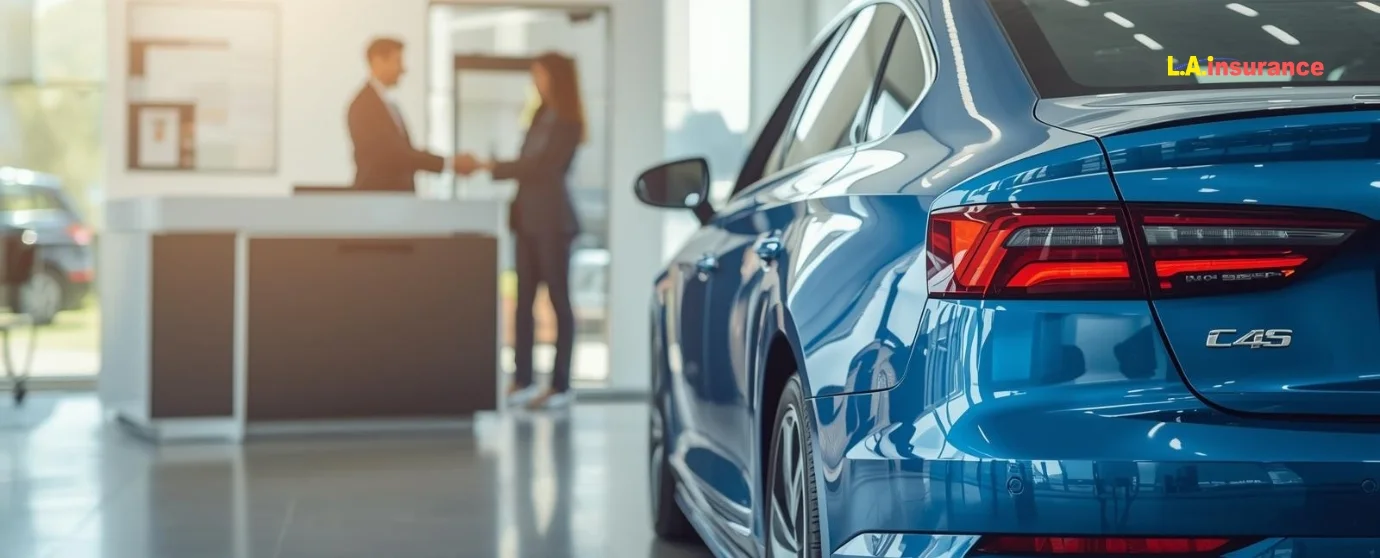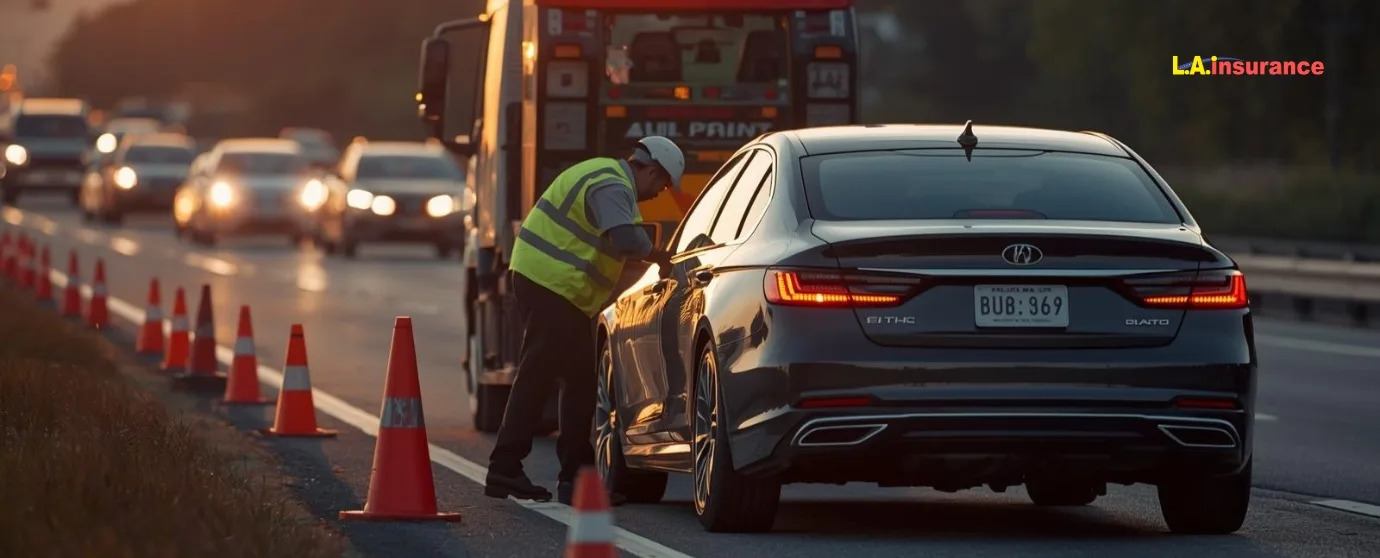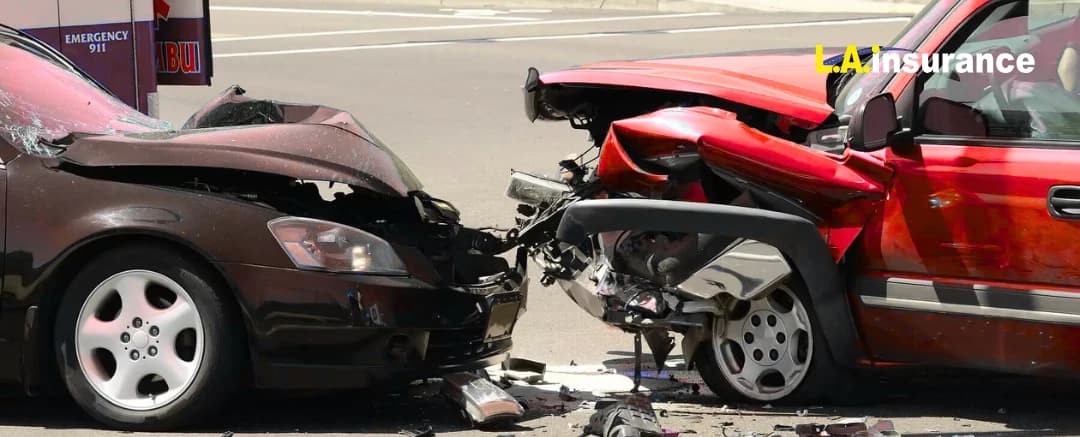
Publish Date: 22-04-2025
Auto Insurance
Last Updated: 12-06-2025
What Is Collision Insurance and What Does It Cover?
What if your car gets damaged in an accident? Can you afford to pay out of pocket for repairs? That’s where collision insurance coverage comes in handy. It helps with repairing or replacing your vehicle after a crash, regardless of fault. Keep reading this article to learn about what collision car insurance is, what it covers, and whether it’s worth the cost.
What Is Collision Insurance Coverage?
Collision insurance coverage is an optional type of auto insurance that helps cover damages to your vehicle after a crash. If you hit another car, collide with a tree, or even swerve to avoid an obstacle and crash, this coverage helps with repairing or replacing your vehicle.
It’s not like mandatory liability insurance, which typically covers the other party’s costs when you’re at fault. Collision auto coverage protects your own vehicle even if you have caused the accident.
Please note that although auto collision coverage isn’t mandatory, there are times when you must maintain it. For instance, if your car is leased or financed, your lender may require collision insurance coverage along with liability and comprehensive insurance.
However, if you own your car outright, it’s optional. The real question is— can you afford to replace your car after a total loss? Or do you have the cash to afford expensive car repairs after accidents? If not, collision coverage is something you should seriously consider.
What Does Collision Car Insurance Cover?
When a driver hits your car or you accidentally hit a guardrail, the repair cost can be unexpectedly expensive. Fortunately, if you have collision insurance, it can help take the burden off your shoulders.
Here’s what collision insurance covers:
- Crashes with other vehicles, even if you’re responsible for it.
- Hitting an object (e.g., tree, fence, or pothole)
- Single-car accidents (e.g., vehicle rollover accidents, even if no other car was involved).
- Hit-and-runs (e.g., in case an unidentified driver hits your car and flees)
- Parking lot accidents (If another car hits your vehicle while parked)
For reliable collision insurance, contact our affordable insurance agency, L.A. Insurance, in Detroit, MI. We've proudly served over 10 million satisfied policyholders across the United States.
What Isn’t Covered Under Collision Insurance?
Although collision insurance coverage helps with repairing or replacing your vehicle after a car accident, it doesn’t cover everything. Knowing its limitations is just as important as knowing its benefits.
Here's what collision insurance does not cover:
- Theft or Vandalism: If your vehicle is stolen or damaged by vandalism, you will need comprehensive insurance coverage.
- Natural Disasters: Collision insurance does not cover floods, hail, tornadoes, lightning, and extreme weather.
- Hitting an animal: If you hit a deer or any other animal, repairs fall under comprehensive car insurance.
- Medical Expenses: Injuries from an accident are covered by personal injury protection or health insurance, not collision insurance.
- Damage to Another Vehicle: If you cause an accident, liability insurance pays for damage to the other driver’s car.
- Mechanical Wear and Tear: Collision insurance does not include normal wear and tear, brake failure, or engine breakdown.
- Legal Fees from Lawsuits: If you are sued by another party after an accident, collision coverage won’t cover legal expenses.
- Rental Car Costs: Unless you have rental reimbursement coverage, you’ll have to pay out of pocket for a rental while your vehicle is being repaired.
Learn More: Types of Car Insurance Coverage
How Does Auto Collision Insurance Coverage Work?
Imagine you’re driving down the road and suddenly a pothole causes you to lose control. You crash into a tree, and your vehicle is heavily damaged. In this case, you’d have to pay out of pocket for repairs, if you don’t have collision coverage.
Let’s say you parked your car outside a store. When you return, you see that another driver hit your car and left without a note. Since there’s no one to file a liability insurance claim against, you’re stuck with the damage. With collision insurance, you can file a claim, pay your deductible, and get your car repaired.
Here’s how the process works if you have collision insurance:
- File a Claim: Contact your insurance company and provide details of the accident. This includes photos and videos of the damage, a police report if required, and other relevant information.
- Damage Assessment: An adjuster inspects damage to your vehicle to determine repair costs.
- Deductible Payment: You pay your collision deductible, which could be $500, $1,000, or higher.
- Insurance Payout: Your insurance policy covers the rest, up to your car’s actual cash value.
Who Should Buy Collision Insurance?
Everyone doesn’t need collision insurance coverage. But it is still the second most important coverage after liability auto insurance for anyone driving across the United States. If you can’t pay out of pocket for repairing or replacing your vehicle after an accident, this could be really useful and ensure financial stability.
Here’s who should seriously consider buying collision insurance:
- If your vehicle is leased or financed.
- If your vehicle is worth a lot
- If the parts, equipment, or repair costs of your car’s make and model are too expensive
- If you can’t afford unexpected repair costs (e.g., total loss situation)
- If you drive in a high-traffic area where there’s a higher risk of a car accident.
- If you live in an area with harsh weather, that increases the chance of collision or accidents, such as snow, ice, and extreme weather conditions.
- If you’re worried about hit-and-runs
- If you own a motorcycle, boat, or classic car
When You Might Not Need Collision Insurance?
Here’s when you might not need collision insurance:
- Your car’s value is low: If your vehicle is worth less than the deductible plus insurance costs, collision coverage may not be worth it.
- You can easily replace your car: If you have enough cash or savings to buy another vehicle, you might skip collision coverage.
- You rarely drive: If your car stays in the garage and sees little road time, the risk of accidents is low.
What Is Collision Deductible for Auto Insurance?
A collision insurance deductible is the amount you agree to pay out of pocket before your insurance company covers the rest of the repair costs. This applies when repairing or replacing your vehicle after a car accident, regardless of who is responsible.
For example, if your collision insurance coverage has a $500 deductible and the damage to your vehicle is $3,000, you’ll pay $500, and your insurance company will cover the remaining $2,500.
The size of the deductible directly affects your car insurance costs:
- The higher your deductible, the lower your car insurance costs.
- The lower the deductible, the higher the insurance premiums.
Apart from the deductible, your collision insurance also comes with a coverage limit. The collision insurance coverage limit is the maximum amount your policy will pay for a covered accident. Typically, the limit is your vehicle’s actual cash value (ACV) at the time of the accident, which accounts for depreciation.
For instance, if your car is worth $10,000 and is totaled in a collision, your insurance company policy will reimburse you for its market value, minus your deductible. So, if your deductible is $1,000, you’d receive $9,000.
How Do I Choose a Collision Insurance Deductible Amount?
Usually, selecting the right deductible depends on your budget, risk tolerance, and vehicle value. Here’s what you should consider:
- Your financial situation
- Your car’s value
- Your driving habits and risk level
When it comes to your financial situation, you should ask yourself the following questions:
- Can I afford to pay out of pocket for repairs?
- If an accident happens tomorrow, do I have enough cash for a high deductible?
Here’s what you should decide based on your car’s value:
- If your vehicle is worth only $3,000, choosing a 1,000 deductible doesn’t make sense.
- However, for a newer car, a higher deductible can lower car insurance rates without excessive risk.
Here’s what you can consider based on your driving habits and risk level:
- If you drive in high-traffic areas or extreme weather, a lower deductible might be better.
- If you’re a safe driver with minimal risk of car accidents, a higher deductible can save you money on insurance costs.
Real-Life Example:
Theodore owns a new car worth $25,000. He is confident in his driving skills. However, he lives in a city with heavy traffic. He considers:
- A $250 deductible: Her insurance premium is higher, but he only pays $250 for repairs.
- A 1,000 deductible: He saves on insurance but would need to cover a bigger expense in case of an accident.
After evaluating his budget and risk, Theodore should choose a $500 deductible. It balances both affordability and out-of-pocket costs. Because, in the end, you need to pick a deductible amount that matches your financial comfort level.
When to Drop Collision Insurance Coverage?
You may consider dropping collision insurance coverage when the cost outweighs the benefits. If your vehicle is worth less than 10 times your annual insurance costs, it might not be worth keeping.
Drop collision coverage if:
- Your car’s market value is below a few thousand dollars.
- The annual premium exceeds 10% of your vehicle’s worth.
- Your car is undriven and kept in storage.
- Your vehicle is covered under another insurance policy
- Replacement parts are expensive due to depreciation.
Older cars with classic car insurance or family coverage may not need collision coverage. Evaluate your risk and budget before making a decision. Read: When to Drop Collision Insurance?
How Much Does Collision Insurance Cost?
The cost of collision insurance coverage depends on several factors, including your vehicle’s worth, deductible, and driving history. On average, collision coverage costs between $300 and $900 per year.
Here’s what affects collision insurance costs:
- Vehicle’s Market Value
- Deductible Amount
- Driving History
- Location & Zip Code
- Insurance Company
To get the best car insurance quote, compare multiple insurance policies and adjust your deductible wisely.
Why Is Collision Insurance Expensive Than Comprehensive Insurance?
Collision insurance coverage and comprehensive car insurance coverage protect your vehicle, but they cover different risks. Collision insurance pays for damages when your car crashes into another vehicle, a tree, or a guard rail. Comprehensive insurance covers non-collision events, such as theft, vandalism, hail, falling objects, and floods.
Why is collision insurance more expensive:
- Higher Claim Frequency: Collision claims are filed more often than comprehensive claims, which increases insurance costs.
- Cost of Repairs: Collision damage often requires expensive repairs, like fixing a bumper, windshield, or vehicle frame.
- Greater Risk to Insurance Companies: Accidents are unpredictable, making collision coverage riskier for insurance companies.
- Likelihood of Fault: Unlike comprehensive insurance, which covers uncontrollable events, collision insurance applies even if you are at fault.
Because collision insurance cover applies to car accidents, insurers see it as a higher risk that leads to higher premiums.
Is Collision Insurance Worth It?
Collision insurance coverage is worth it if your vehicle is worth more than the annual insurance cost. Besides, if your car is old or heavily depreciated, dropping collision coverage might make sense. Despite its cost, this coverage helps repair or replace your vehicle after an accident and makes sure you won’t have to pay out of pocket. Consequently, if you can’t afford sudden repair expenses, keeping collision insurance is absolutely worth it.
Protect Your Vehicle from Unforeseen Accidents with L.A. Insurance
Unexpected accidents can happen anytime. Get affordable full coverage auto insurance to stay protected from L.A. Insurance. Find an agent to talk to or call 800-893-9393 for any general inquiries. Get a cheap car insurance quote now and secure your coverage today.
Learn More About Collision Insurance:
- Should I Have Collision Insurance on a 10-Year-Old Car?
- Liability Auto Insurance Vs. Collision Insurance Coverage
Frequently Asked Questions on What Is Auto Collision Insurance Coverage
1. Does Collision Insurance Cover Uninsured Motorists?
No, collision insurance coverage only pays for damage to your vehicle after an accident. However, uninsured motorist coverage helps if an uninsured driver hits your car. Besides, liability insurance covers injuries and property damage in such cases.
2. What Is the Basic Difference Between Liability Insurance and Collision Insurance?
Liability insurance covers damages and injuries you cause to others. Collision insurance coverage, on the other hand, helps with repairing or replacing your vehicle after a car accident, regardless of fault. Nevertheless, both are essential for financial protection.
3. Is Collision Insurance Required in Florida?
No, Florida does not legally require collision insurance coverage. However, if your car is leased or financed, your lender may mandate it. Besides, Florida drivers must carry personal injury protection (PIP) and property damage liability (PDL).
4. Is Collision Insurance Legally Required in Michigan?
Michigan law does not require collision insurance coverage. Nevertheless, loan or lease agreements often demand it. Also, Michigan requires personal injury protection, property protection insurance, and residual liability insurance to meet auto insurance requirements.
5. At What Point Does Collision Insurance Stop Being Beneficial?
Collision coverage may not be worth it if your vehicle is worth less than 10 times your annual premium. Besides, dropping it makes sense if repair costs exceed your car’s market value or you can afford to pay out of pocket.
6. Do I Need Collision Insurance If My Car Is Paid Off?
No, collision insurance coverage is optional for a paid-off vehicle. However, it’s beneficial if repair costs would cause financial strain. Besides, it’s crucial if your vehicle is worth a lot or if you drive in high-risk areas.
7. Will My Insurance Cost Go Up After a Collision Insurance Claim?
Yes, filing a collision insurance claim can increase your car insurance cost. However, some insurance companies offer accident forgiveness, preventing rate hikes for first-time claims. Also, the increase depends on fault, damages, and driving history.
8. What’s the Difference Between Collision and Comprehensive Insurance?
Collision insurance coverage covers accidents, like hitting another car, a tree, or a pothole. Comprehensive insurance coverage, on the other hand, covers non-collision damages, including theft, vandalism, hail, flooding, and falling objects. Also, collision coverage is usually more expensive due to higher claim frequency.
Editorial Disclaimer
The information provided on this blog is for general informational purposes only and does not constitute professional insurance, legal, or financial advice. Coverage and rates are subject to individual eligibility, underwriting guidelines, and state availability. For specific questions regarding your policy or to get an accurate quote, please contact a licensed L.A. Insurance agent directly. We're an independent agency and not a direct insurance carrier. For more information on how we operate and handle your data, please see our Terms and Conditions and Privacy Policy.
Tag :
Auto insurance
Comercial Auto
